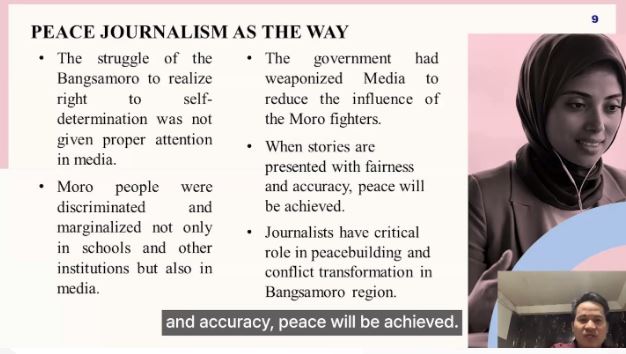It has been stated that journalism can help solve global challenges such as misinformation and conflicts in the era of rapid digital change.
This was stated earlier this week at the HWPL International Workshop on Peace Journalism Training which was held on April 17, 2025 online.
Participants in the workshop which brought together journalists, academics and peace practitioners to explore how peace journalism.
The workshop which was organized online by the international peace non-governmental organization, Heavenly Culture, World Peace, Restoration of Light (HWPL), and involved more than 200 participants who joined from 50 different countries.
The workshop, which was themed Transforming Conflicts through AI and Cultural Understanding, focused on the increasing impact of artificial intelligence (AI) on journalism. The discussion explored how journalists can responsibly incorporate new technologies while upholding core values such as accuracy, fairness and compassion.
It also featured discussions around the recent publication, Peace Journalism Training (2024).
They also discussed the potential of peace journalism in promoting reconciliation and understanding between cultures, particularly in conflict-affected areas. The case studies illustrate how constructive reporting can help bridge divides and support long-term peacebuilding.
The Director-General of the Zambian National Broadcasting Corporation, Mr. Berry Lwando, said In today’s media landscape, what we choose to cover is what we choose to cover. Peace journalism is not about ignoring conflict, it is about framing it in ways that invite dialogue, not division. That is the responsibility we bear.
Malawian Member of Parliament for Blantyre South City Assembly Constituency, Mr. Noel Lipipa, in his congratulatory message. He said he was encouraged by the work being done to explore how AI and cultural understanding can help reshape the way we tell stories and resolve conflicts. The world needs more storytellers committed to peace.
Director of News, Sports and Current Affairs / ABS TV Radio in Antigua and Barbuda, Mr. Garfield Burford, stressed the importance of evidence-based reporting to combat misinformation. While AI can make journalism more effective, he warns that it also raises concerns about accuracy and credibility. He stresses that ethical judgment and human empathy remain essential to a journalist’s work.
Executive Director of Agleswori Hills Development Trust in Nepal, Mr. Sijam Sinjali, spoke about the role of peace journalism in promoting non-violent conflict resolution. His essay explores the ethical challenges and responsibilities that peace journalists face, and how technology can help to report more news that is solution-oriented.
From the Philippines, Executive Director of angsamoro Dialogue for Peace and Justice, Dr. Musa Damao , explained how peace journalism supports the Bangsamoro peace process. He advocates for the inclusion of peace education in school curricula and highlights how ethical journalism can contribute to peace and sustainable development.
The Executive Director of the Varna Institute for Peace Research in Austria , Mr. Josef Mühlbauer , said that open dialogue and debate can help challenge dangerous narratives. The Varna Peace Institute as a platform where open dialogue helps to uncover the sources of conflict and promote understanding.
The Director of Media Desa in Indonesia , Ms. Tuty Purwaningsih looks at how families and communities teach values such as tolerance, compassion and how the media can promote these efforts by focusing on constructive stories.
The workshop, aligned with HWPL’s broader peace initiatives, particularly the Declaration on Peace and Cessation of War (DPCW).
Article 10 of the DPCW, “Promoting a Culture of Peace,” emphasizes the role of the media in promoting understanding through responsible communication.
HWPL continues to advocate for journalism that contributes to a peaceful and inclusive society.
The event concluded with a call for strong collaboration among journalists, academics, and peace builders, reaffirming a shared commitment to ethical and responsible journalism in a rapidly evolving media landscape.




